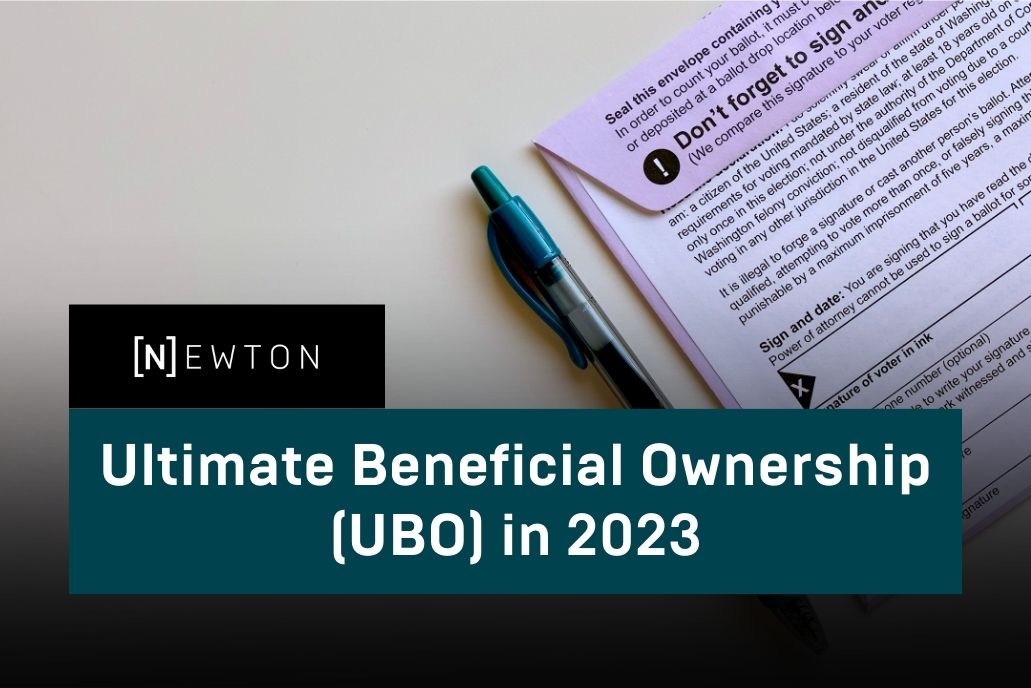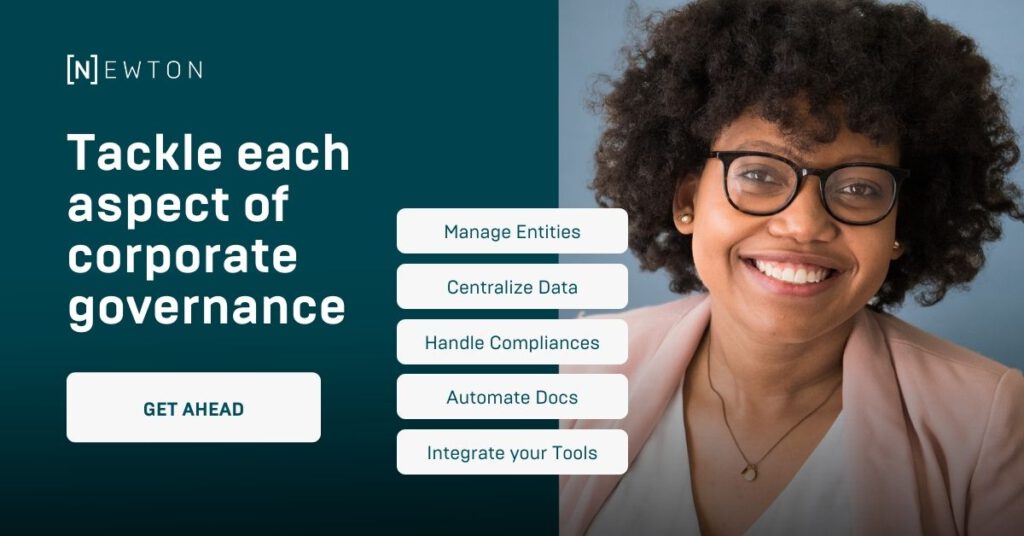
Learn more about Ultimate Beneficial Ownership (UBO). Understand better what UBO means, why it is important, and how it can be identified and managed effectively.
Dear Legal Ops!
Welcome to “Let’s Talk About Legal Ops” — a series by NEWTON exploring the evolving role of legal operations in modern organizations.
From legal entity management and document oversight to cross-functional collaboration, we share practical insights for legal teams navigating complex environments.
Looking for more? Browse our blog for posts on strategy, structure, new features, and practical tips.
- How to Set Default Filters in NEWTON for Faster Access
- How to Copy Entity Data from NEWTON into Emails or Documents
- Maximizing Transparency and Compliance with Legal Entity Management: The Power of Automated Visual Charts
Get the Latest NEWTON News
Don’t miss out on the latest NEWTON features, updates, and improvements. Subscribe to our newsletter and stay informed about everything NEWTON—new tools, enhanced functionality, and fixes that make compliance management easier for your business!
In 2022, the Court of Justice of the European Union reconsidered the accessibility of UBO to any member of the general public due to fundamental rights for private life and the protection of personal data. That caused several changes and new rules to follow for companies, operating in the EU.
But first, here is what you need to know about UBO:
UBO refers to the real person(s) who own or control a legal entity or asset. This means that they are the ultimate beneficiaries of any income or profits generated by the entity. The concept of UBO is important because it helps to prevent financial crimes by increasing transparency in ownership structures.
In this article, we will cover the following:
What is the difference between BO and UBO?
The terms “UBO“ and “BO“ both refer to beneficial ownership, but they differ in their scope and level of detail.
“BO“ stands for “Beneficial Ownership“, which is the legal and financial concept of who ultimately owns or controls a company, asset, or property.
Beneficial ownership can be:
- direct, where an individual or entity holds legal ownership
- indirect, where ownership is held through other entities or individuals.
“UBO“, on the other hand, means “Ultimate Beneficial Ownership“, which is a more specific and detailed concept.
UBO refers to the individual or entity that ultimately owns or controls a company or asset through a chain of ownership or control. Basically, the UBO is the person or entity that has the final say over the decisions made by a company or asset, regardless of holding legal ownership.
Why is Ultimate Beneficial Ownership Important?
UBO is important because it helps to prevent financial crimes such as money laundering, terrorist financing, and corruption. Due to many different scheme opportunities for frauds to hide the identity and the source of assets, it is important to have a tool such as UBO to be able to identify the origin of assets or who stands behind the legal entity. By identifying the UBO of a legal entity, law enforcement agencies, and financial institutions can better assess the risk of financial crime.
Identifying Ultimate Beneficial Ownership
Identifying UBO can be challenging, especially when complex ownership structures are used. Some common methods used by criminals to hide their identities include using nominees or shell companies, transferring ownership through multiple layers, and using offshore companies in tax havens. However, there are several measures that can be taken to identify UBO, including conducting due diligence, using beneficial ownership registries, and implementing Know Your Customer (KYC) procedures.
Learn more about how proper KYC procedures would warn Silicon Valley Bank from collapse.
Managing Ultimate Beneficial Ownership
Once UBO has been identified, it is essential to manage it effectively to make it in use. This includes maintaining accurate records of ownership, monitoring any changes in ownership, and conducting regular risk assessments, creating Legal Entity Management Identifiers (LEI). Learn more about LEI and who needs it.
It is also important to ensure that all relevant stakeholders are aware of their obligations and responsibilities under anti-money laundering (AML) and counter-terrorist financing (CTF) regulations.
New EU regulations regarding UBO
Recently, there were implemented some changes to the EU UBO register access rules (effective 23 November 2022), that impact compliance requirements for companies operating in the EU. Precisely, companies that are not traded publicly are given the option to restrict public access to UBO registers.
Based on that, compliance requirements might be different for companies and depend on in which country the company is registered and operates. For example, in Luxembourg and Netherlands, access to the register may be restricted, while in other EU member states, the UBO register can be accessed by providing additional documentation to authorities.
Other than that, the new regulation obligates any foreign investors (directly or indirectly) owning German real estate must prepare for extended UBO reporting requirements. Due to the Sanction Enforcement Act II, legal provisions on extended reporting requirements for purposes of the German Transparency Register came into force on 28 December 2022.
Previously, foreign entities investing directly or indirectly in German real estate were obligated to repost their UBO to the German Transparency Register. Due to the new regulations, foreign entities are required to report the UBO for the previously existing investments in German real estate by 30 June 2023, which were not registered before.
Overall, businesses operating within the EU should be aware of these changes and ensure that they comply with the relevant regulations and requirements of each country in which they operate.
Get the Latest NEWTON News
Don’t miss out on the latest NEWTON features, updates, and improvements. Subscribe to our newsletter and stay informed about everything NEWTON—new tools, enhanced functionality, and fixes that make compliance management easier for your business!
Conclusion
Ultimate Beneficial Ownership is a critical tool in preventing the growth of the black economy, money laundering, forgery, and corruption. By increasing transparency in ownership structures, UBO can help to identify and prevent criminal activities. However, identifying and managing UBO can be challenging, and it is important to take appropriate measures to ensure compliance with AML and CTF regulations.
Where does NEWTON fit into all of this?
NEWTON delivers an easy and intuitive platform to manage and automate your legal entities’ information, governance, and compliance. With governance being the foundation to all ESG matters, be sure to get in touch to explore how Newton can help you have everything you need to be in control of your entity portfolio.

About this article
Sources
Oraz K. (2023).
UBO: Understanding the Ultimate Beneficial Owner
CT. Corporation Staff (2023).
The importance of UBO due diligence in the global M&As
Netherlands Enterprise Agency, RVO.
UBO register for ultimate beneficial owner
Eversheds Sutherland (2022).
EU court orders UBO-register to be closed to the public
Simon L. (2023).
What does the EU UBO register access removal mean for compliance?
Eva J., Lukáš P. (2022). Changes in ultimate beneficial owners recording legislation – a modified definition of the ultimate owner and broader reporting duties
Financial Times (2022).
European countries begin taking down public company registers after ruling
FlickGocke Schaumburg (2023).
Foreign investors (directly or indirectly) owning German real estate must prepare for extended UBO reporting requirements
Images
Featured Image: Photo by Tiffany Tertipes on Unsplash
Featured CTA blog post: Photo by Jurica Koletić on Unsplash / Photo by Christina @ wocintechchat.com on Unsplash